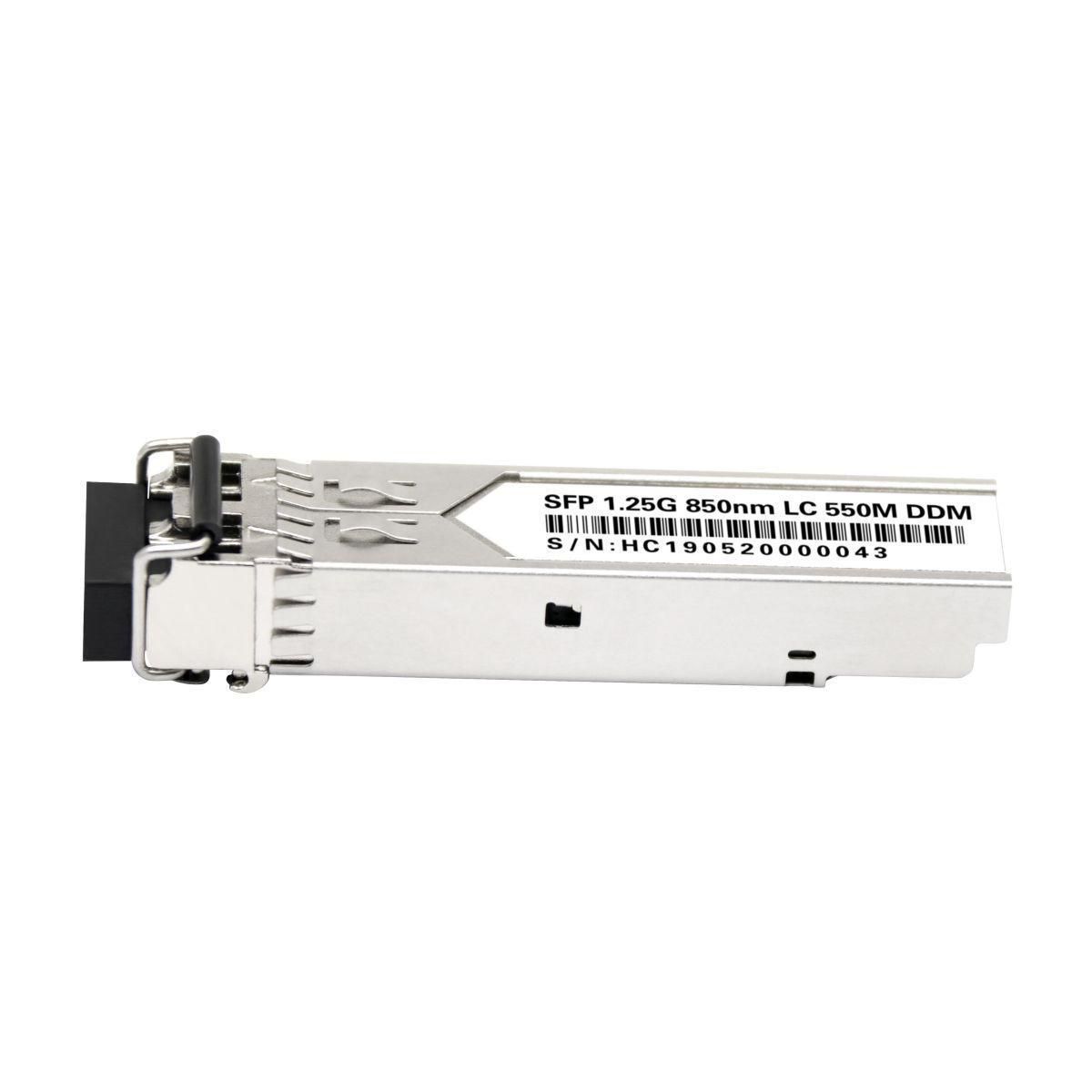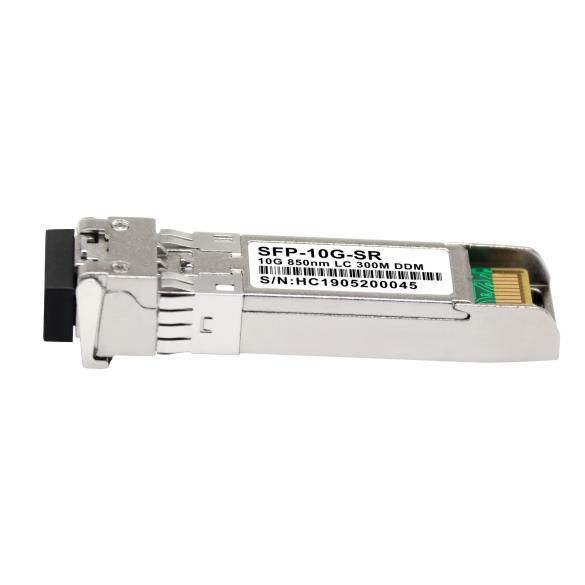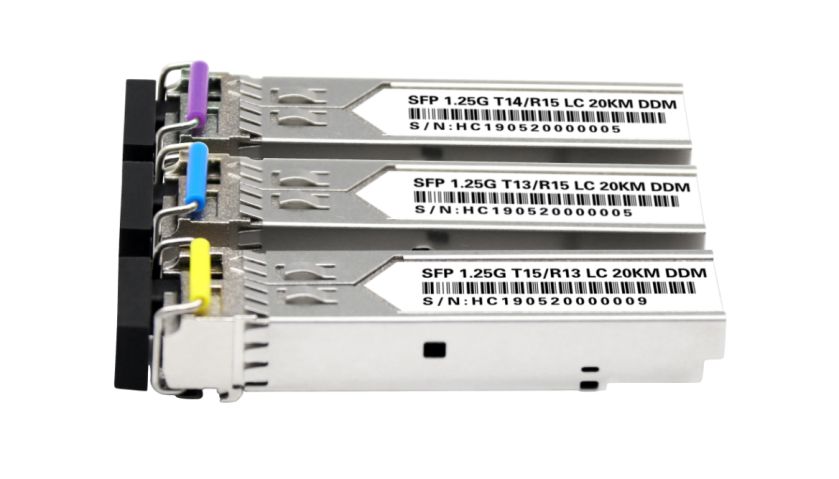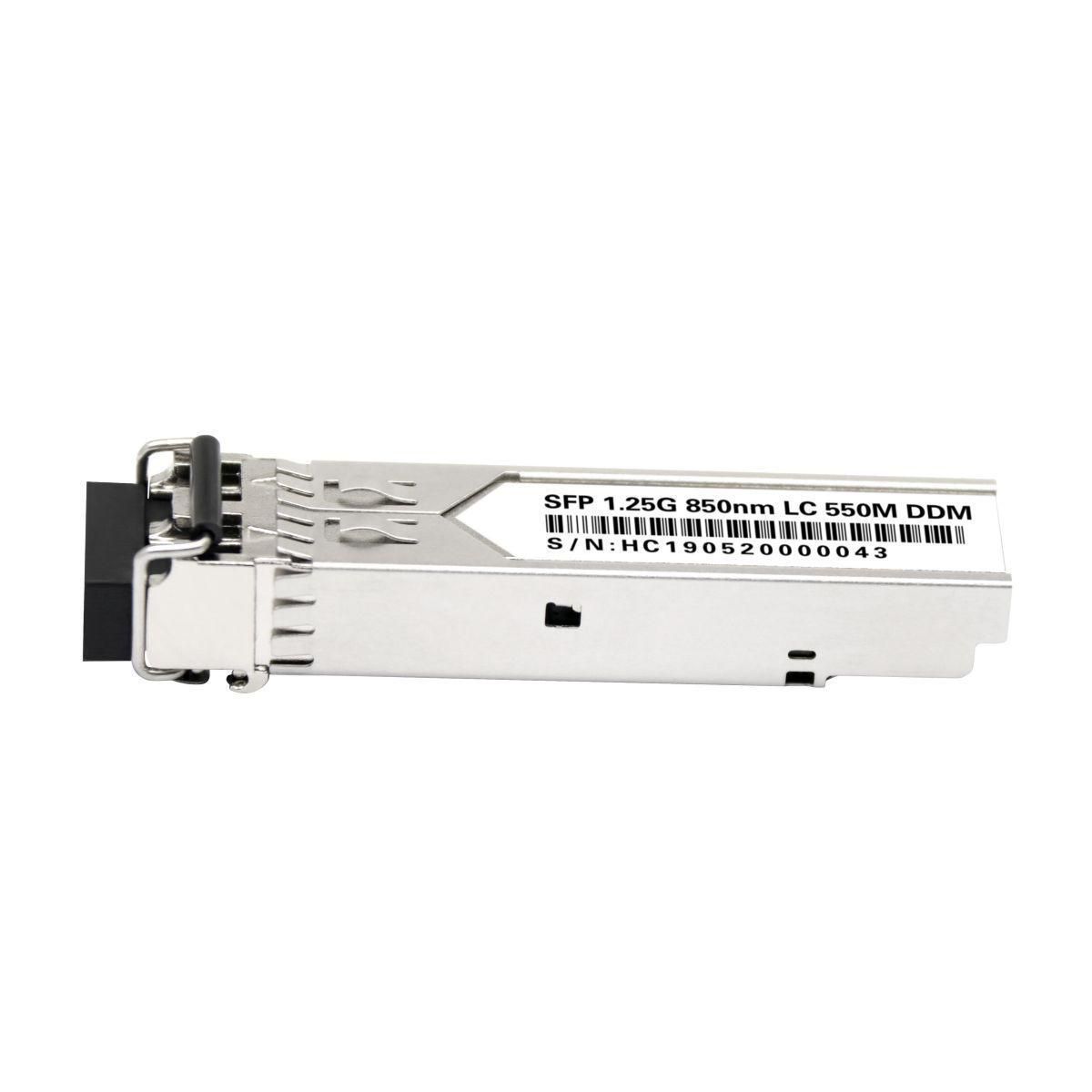There are many types of SFP modules, and ordinary users often have no way to start when selecting SFP modules, or even do not understand the information, blindly believing in the manufacturer, resulting in the inability to choose their own suitable or the best combination. Below is a classification of SFP modules from different perspectives to help you choose.
Classification by transmission rate:
According to different rates, there are 155M, 622M, 1.25G, 2.125G, 4.25G, 8G, and 10G. Among them, 155M and 1.25G (all in mbps) are widely used and widely used in the market. The transmission technology of 10G has gradually matured, the cost is also gradually decreasing, and the demand is developing in an upward trend; However, due to the limited network penetration rate currently available, the usage rate is at a low level and the growth is slow. The following figure: SFP module with 1.25G and 10G speeds


Wavelength classification
According to different wavelengths (optical wavelengths), there are 850nm, 1310nm, 1550nm, 1490nm, 1530nm, 1610nm. Among them, the module with a wavelength of 850nm is multimode, with a transmission distance of less than 2KM (used for medium and short distance transmission, the advantage is lower than the cost of network cables, and the transmission loss is lower). The module with a transmission wavelength of 1310nm and 1550nm is single mode, with a transmission distance of 2KM-20KM, which is relatively cheaper than the other three wavelengths, So it is also widely used, generally choosing from these three options is enough. Naked modules (which are standard modules with any information) can easily be confused without identification. Generally, manufacturers will distinguish the color of the pull ring, such as black pull ring for multimode, with a wavelength of 850nm; Blue is a module with a wavelength of 1310nm; Yellow represents a module with a wavelength of 1550nm; Purple is a module with a wavelength of 1490nm.

As shown in the above figure, different colors correspond to different wavelengths

As shown in the above figure, it is an 850nm SFP module
Classification based on transmission mode
Multimode SFP
In terms of size, almost all multimode optical fibers are 50/125mm or 62.5/125mm, and the bandwidth (information transmission capacity of optical fiber) is generally 200MHz to 2GHz. When using a multimode optical transceiver, multimode optical fibers can transmit distances up to 5 kilometers. Using light-emitting diodes or lasers as light sources. The pull ring or body color is black.
Single mode SFP
The size of single mode fiber is 9-10/125mm, and compared to multimode fiber, it has infinite bandwidth and lower loss characteristics. Therefore, when transmitting over long distances, single mode transmission is more preferred. Single mode optical transceiver is often used for long-distance transmission, sometimes reaching up to 150 to 200 kilometers. Use LD or LED with narrow spectral lines as the light source. The pull ring or body color is blue, yellow, or purple. (The wavelengths corresponding to different colors are clearly explained on them.)





